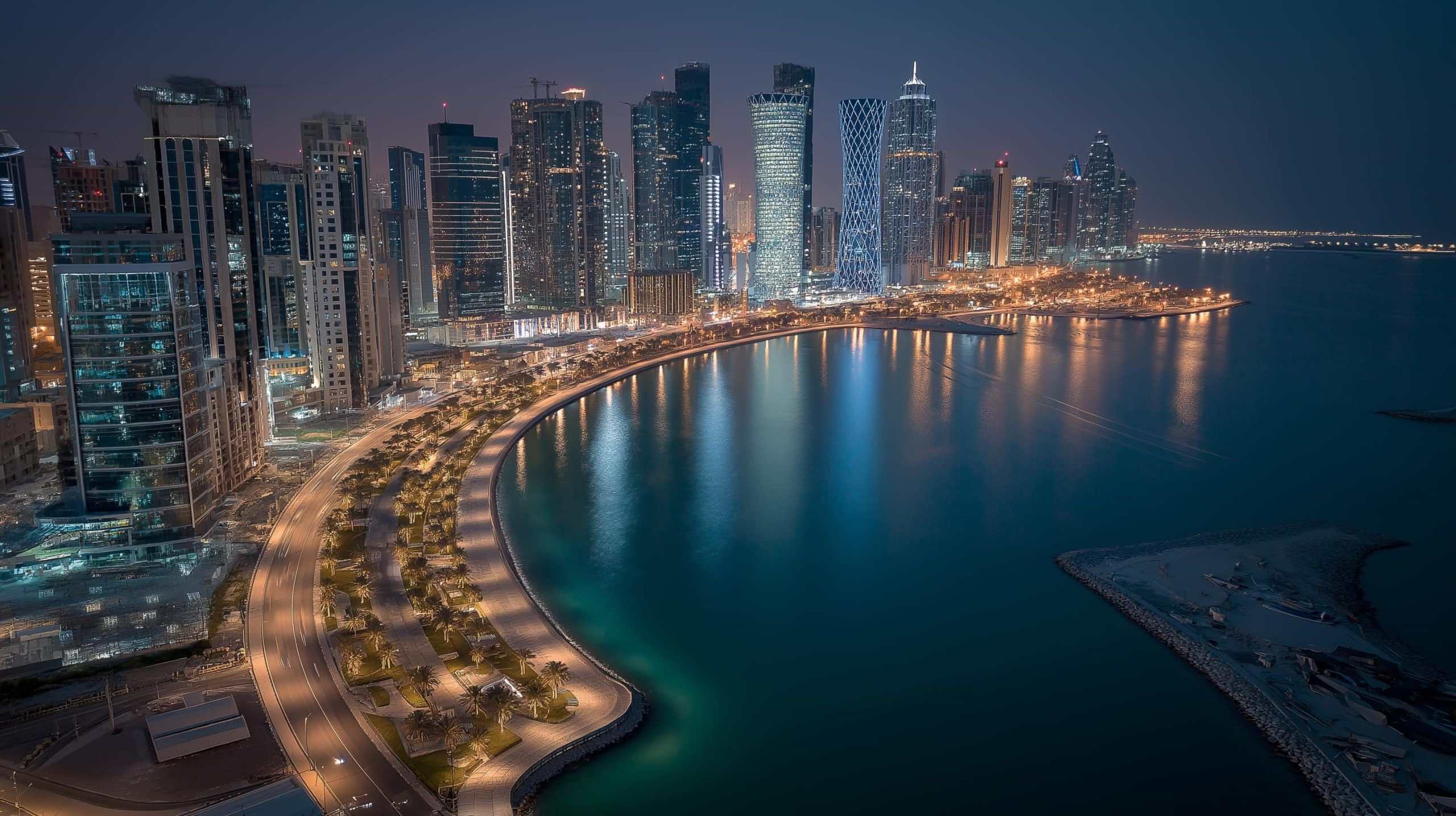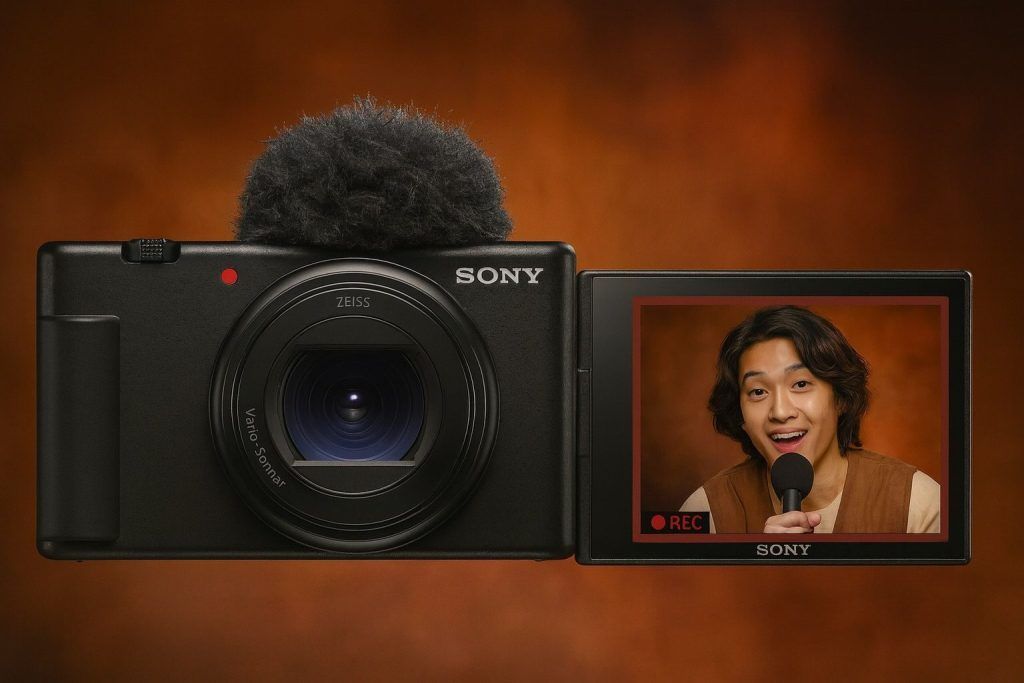- In Qatar, drone operations require prior authorization from the Qatar Civil Aviation Authority (QCAA); unapproved flights are illegal.
- Only Qatari citizens and permanent residents may operate drones; foreign visitors are not permitted to fly.
- Every drone flight requires a QCAA permit, and owning a drone does not grant the right to fly.
- Recreational drone use is tightly restricted to Qatari nationals or residents who obtain a QCAA permit for each flight, typically within designated clubs such as the RC Sport Center, and must stay below 400 feet, in daylight, and within line of sight.
- Commercial drone use is allowed only for Qatari-registered entities with local sponsorship; a QCAA permit and drone registration are required for each project, with detailed operation documentation, possible security clearance, and an on-site officer, plus ATC coordination and liability insurance.
- There is a roughly 4.5 nautical mile (about 8 km) no-fly zone around Hamad International Airport, and drones must stay well clear of airports and airfields, avoiding aircraft approach/departure corridors.
- The maximum altitude is 400 feet (120 meters) above ground level, and flights are permitted only in daylight hours and in good weather.
- Drone operators must keep the drone within direct visual line-of-sight at all times; FPV or beyond-visual-line-of-sight flights are not allowed for civilian users.
- During major events, temporary no-fly zones around stadiums and venues are declared, and drones may be intercepted; for example, restrictions were enforced around the FIFA World Cup 2022.
- Since October 2021, drone registration has been compulsory with separate QCAA forms for individuals, companies, and government entities, a maximum of five drones per registrant, and mandatory liability insurance; operators must carry proof of registration and QCAA permits while flying.
Overview of Drone Regulations in Doha, Qatar
Drones – officially termed Unmanned Aircraft (UA) or Remotely Piloted Aircraft Systems (RPAS) – are subject to very strict regulations in Qatar, among the strictest in the world ts2.tech. In Doha and nationwide, drone operations are generally prohibited unless you have prior authorization from the Qatar Civil Aviation Authority (QCAA) ts2.tech. The QCAA is the primary agency overseeing drone use, and under Qatar’s civil aviation laws, any unapproved drone flight is considered illegal. In practice, casual hobby flying is nearly impossible without explicit permission, and most drone usage is limited to government entities or specially approved commercial projects ts2.tech ts2.tech.
A key rule is that only Qatari citizens and legal residents are allowed to operate drones in Qatar, and foreign visitors/tourists are not permitted to fly drones at all ts2.tech. In fact, if a traveler tries to bring a drone into Qatar without prior approval, the device will likely be confiscated upon entry at customs Uavcoach. Every drone flight requires a QCAA permit, so owning a drone does not grant freedom to fly – each operation must be vetted and authorized by authorities in advance ts2.tech ts2.tech. Overall, Doha’s current drone regulations can be summarized as permission-heavy and security-focused, aimed at protecting the public and airspace from any unregulated UAV activity.
Recreational vs. Commercial Drone Use
Recreational (hobby) drone use in Doha is very tightly restricted. As noted, only Qatari nationals or residents can even apply to fly for fun, and they must obtain a QCAA permit before every flight ts2.tech. There are virtually no public areas where one can freely fly a drone for leisure. In practice, recreational flying is limited to designated clubs and controlled fields. For example, Qatar’s government-affiliated RC Sport Center allows hobbyists to fly at an RC airfield, but pilots must obtain a club membership/license (with fees) and follow strict club rules ts2.tech. Even with a hobby permit or club access, recreational pilots must obey all QCAA rules – flying only in authorized areas, below the altitude limit (400 ft), in daylight and good weather, within line-of-sight, and never over people or sensitive locations ts2.tech. In short, spontaneous drone fun is essentially off-limits in Doha; any leisure flight must be explicitly approved and closely supervised ts2.tech.
Commercial drone use (for photography, surveys, inspections, etc.) is possible but under extremely strict requirements. Any commercial operator must be a Qatari-registered entity – foreign companies or freelancers cannot simply bring in a drone without working through a local Qatar-based sponsor or company ts2.tech ts2.tech. Prior approval from QCAA is mandatory for all commercial flights ts2.tech. In practice, this entails obtaining a QCAA commercial drone permit for each project and also registering the drone (see the next section for registration). Commercial applicants need to submit detailed documentation about each intended operation. Typically this includes a formal letter or application describing the project, the client or purpose, exact flight location (with maps), dates/times, the drone model, and the specific task (e.g. filming, mapping) ts2.tech. Security clearance is often part of the process – authorities may coordinate with Qatar’s military or security services for certain aerial photography or sensitive projects ts2.tech. In some cases, a security officer may be required on-site during the flight to ensure the drone is used exactly as approved ts2.tech. Additionally, commercial drone pilots must contact Air Traffic Control (ATC) on the day of operation for final airspace clearance before launch and after landing ts2.tech.
Insurance is effectively required for commercial operations – while not explicitly written in public law, QCAA insists on proof of liability insurance before granting a drone permit ts2.tech. All general safety rules (e.g. max 120 m altitude, no flying over crowds, daylight only) apply equally to commercial flights. In summary, commercial drones are allowed on a case-by-case basis with QCAA’s explicit permission, and the approval process is thorough to ensure safety and security at every step ts2.tech ts2.tech.
(Note: Government and institutional drone use follows similar strict protocols. State agencies like police, military, or civil defense have more latitude under special frameworks, but they too coordinate with QCAA and must register drones. Government-operated drones are typically used for security, surveillance, or events under internal approvals and are not for casual use ts2.tech ts2.tech.)*
Licensing and Registration Requirements for Operators
Since October 2021, drone registration has been compulsory in Qatar for any individual, company, or government entity that wants to operate a UAV ts2.tech. The QCAA manages a drone registry and has specific application forms for different categories: one form for individuals (hobbyists), one for companies (commercial operators), and one for government/semi-government agencies ts2.tech. Registering a drone is a prerequisite to apply for any flight permit. When registering, the owner must provide details about the drone (make, model, serial number) as well as the operator’s information and intended use.
In addition to registering the aircraft itself, Qatar imposes several eligibility conditions on who can register/operate a drone ts2.tech ts2.tech:
- Minimum Age: The drone operator must be at least 18 years old ts2.tech.
- Nationality/Residency:Only Qatari citizens or permanent residents are permitted to register and own drones in Qatar ts2.tech. (Tourists and short-term visitors are not allowed to get authorization to operate.)
- Local Sponsorship for Companies: A company applying to register a drone must be a Qatar-registered company with a local presence ts2.tech. Businesses need to provide a Letter of Authorization outlining the types of drone activities they intend to conduct ts2.tech. (Foreign companies must partner with or set up a local entity to legally operate drones.)
- Drone Limit: An individual or organization may register a maximum of five (5) drones in total ts2.tech. This limit prevents anyone from amassing large fleets of UAVs without special permission.
- No Modifications: It is forbidden to modify or add any unapproved attachments to the drone beyond its original design ts2.tech. In other words, you cannot jury-rig weapons, drop systems, or other payloads that were not part of the manufacturer’s specs ts2.tech.
- Mandatory Insurance:Liability insurance is required before operating a drone. Applicants must provide proof of an insurance policy covering damages or accidents that could be caused by the UAV ts2.tech.
Successful registration with QCAA essentially licenses the drone for use under QCAA’s rules. However, registration alone is not enough – the operator must still obtain flight permits for each use (flight authorization) ts2.tech ts2.tech. Qatar does not yet have a standalone “remote pilot license” like some countries do. Instead, having the drone registered and then obtaining the specific QCAA operational permit for a flight serves as the de facto licensing of the pilot to fly under the approved conditions ts2.tech ts2.tech. (For instance, a hobbyist flying at the RC club would have a club-issued license in addition to QCAA registration, whereas a commercial operator gets a QCAA project authorization letter ts2.tech.) Drone operators must carry proof of the drone’s registration and the QCAA permit while flying, and present them to authorities upon request ts2.tech.
No-Fly Zones, Restricted Airspace, and Flight Rules in Doha
Qatar maintains strict no-fly zones and airspace restrictions to protect public safety, privacy, and critical infrastructure. Unless you have special permission for a particular area, it’s safest to assume that most locations are off-limits to drones by default ts2.tech. Key drone restrictions and “no-fly” rules include:
- Airports and Flight Paths: It is illegal to fly a drone anywhere near airports or where it might interfere with aircraft. Drones must stay well clear of Hamad International Airport in Doha and all other civil or military airfields. In fact, official aeronautical notices designate a roughly 4.5 nautical mile (≈8 km) radius no-fly zone around every airport Gov. Practically, drone pilots should keep a wide berth (several kilometers at least) from any airport and never fly in the approach or departure corridors of planes ts2.tech.
- Maximum Altitude:400 feet (120 m) above ground level is the maximum altitude for drones in Qatar Gov. This cap is to ensure drones remain well below manned aircraft traffic. Even with permission, QCAA will typically not allow flights above this height.
- Urban and Residential Areas: Flying over densely populated areas, residential neighborhoods, or gatherings of people is prohibited without special authorization ts2.tech. You cannot operate a drone over crowds (e.g. festivals, markets, public events) or near busy streets and buildings for safety and privacy reasons ts2.tech.
- Sensitive Sites:No-fly zones include all military bases, security or police facilities, government buildings, and critical infrastructure (power plants, water facilities, oil and gas fields, communication towers, etc.) ts2.tech. Drone pilots must avoid these sensitive areas entirely. Flying near any military installation or border zone is especially dangerous – authorities may treat it as a security threat and respond accordingly ts2.tech.
- Stadiums and Event Venues: During major events, temporary no-fly zones are declared around stadiums and venues. Notably, in the lead-up to the FIFA World Cup 2022, Qatar’s Safety & Security Operations Committee banned all drones around World Cup stadiums and sports facilities, warning that any drone in those areas would be immediately disabled by security forces and the operators subject to legal action Gulf Times. In general, do not fly near sports stadiums, concert arenas, or VIP event sites without explicit clearance, as these are often protected airspace during events Qatarloving Qatarloving.
- Time of Operation:Drones may only be flown in daylight hours and in good weather ts2.tech. Night flying is forbidden unless one obtains rare special permission. Likewise, flying during high winds, rain, or dusty conditions is strongly discouraged for safety.
- Visual Line-of-Sight: Operators must keep the drone within direct visual line-of-sight (VLOS) at all times ts2.tech. First-person-view (FPV) or beyond-line-of-sight flights are not allowed for civilian drone users under current rules. You should always be able to see your drone with the naked eye during flight.
In effect, “No Drone Zone” is the default status for most of Doha and Qatar’s airspace unless you have been granted a specific exemption ts2.tech. The QCAA does not publicly publish detailed drone airspace maps, so drone pilots must rely on their permit specifications and general law. Always fly only in the exact location, altitude, and time window that your QCAA permit authorizes ts2.tech. Straying outside approved zones or violating these airspace rules can lead to immediate intervention by authorities. Qatar has deployed advanced systems to detect and jam unauthorized drones, especially around sensitive sites and event venues ts2.tech. In short, strict adherence to no-fly zones and flight rules is essential when operating a drone in Doha.
Penalties for Violating Drone Laws
Using a drone illegally in Qatar carries severe penalties. The authorities treat unauthorized drone use as a serious offense – both for public safety and national security reasons. If you fly a drone without permission or break the rules of your permit, the minimum outcome is likely confiscation of your drone by the police or security forces ts2.tech ts2.tech. The device and any recordings can be seized on the spot as evidence.
Beyond confiscation, Qatar’s laws allow for criminal charges and harsh punishments in many cases. Depending on the severity of the infraction, an offender may face heavy fines and even imprisonment for serious violations ts2.tech. Unofficial reports suggest fines can reach up to around QAR 36,000 (≈USD 10,000) for egregious breaches ts2.tech. For example, flying a drone in a sensitive high-security zone or endangering aircraft could result in arrest and prosecution, with potential jail time. Lesser violations (like a first-time recreational offense in a non-sensitive area) might incur smaller fines, but Qatar tends to adopt a zero-tolerance stance on “rogue” drones ts2.tech.
Anyone caught flying illegally will also almost certainly be blacklisted from future drone permits, effectively banning them from operating drones in Qatar going forward ts2.tech. It’s worth noting that even while Qatar’s dedicated drone law is being finalized, existing civil aviation regulations and general penal code provisions are used to charge violators ts2.tech. For instance, the current Civil Aviation Law already prohibits unlicensed aircraft operations, and Qatar’s Penal Code can be applied if a drone is used in a way that threatens safety or privacy. In summary, unauthorized drone flying in Doha can lead to drone confiscation, hefty fines, and even imprisonment ts2.tech ts2.tech. The only safe approach is to fully comply with QCAA rules and permit conditions at all times to avoid these consequences.
Recent Updates and Changes to Drone Regulations
Drone regulations in Qatar are undergoing developments, especially following major events and in light of new technologies. During the FIFA World Cup 2022, Qatar imposed exceptionally tight drone restrictions. As noted, the tournament’s security committee explicitly banned drones near stadiums and had technology in place to intercept unauthorized drones during the event Gulf Times. This was a temporary measure to ensure public safety and security for the duration of the World Cup. The successful enforcement (no major drone incidents were reported during the World Cup) underscored Qatar’s capacity to control airspace during large events. It set a precedent that similar drone bans or no-fly zones can be expected during any future high-profile events in Doha (such as international summits, major sports events, etc.), with violators facing immediate countermeasures and legal action Gulf Times.
In terms of legal updates, 2025 has brought significant progress toward a comprehensive drone law in Qatar. In January 2025, the Qatari Cabinet approved a draft law on drones and referred it to the Shura Council (legislative body) for deliberation ts2.tech. According to official statements, this forthcoming law is intended to establish a clear legal framework governing all drone activities in the country ts2.tech. The draft law’s goals include maintaining the safety of air navigation, protecting lives and property, defining the responsibilities of relevant authorities, and ensuring optimal (responsible) use of drones Thepeninsulaqatar ts2.tech. Notably, the law also aims to stimulate innovation and investment in the drone sector – indicating that Qatar is looking to enable beneficial uses of drones (e.g. in commerce, industry, or public services) under strict regulation ts2.tech.
As of mid-2025, this drone law has not yet been finalized or enacted into force. However, its progress suggests that more detailed regulations – and potentially some relaxed rules for certain use-cases – may soon be codified in law ts2.tech. Observers expect that the new law will formalize many of the current QCAA practices (registration, permitting, no-fly zones, penalties) into legislation, and possibly introduce new categories or licenses for drone operations (for example, distinct rules for small hobby drones vs. large commercial drones, or certification of drone pilots) ts2.tech. It may also specify clearer penalty ranges for violations in the statute. Drone users in Doha should keep an eye on announcements from QCAA, the Ministry of Transport, or the official gazette for updates on when the new law is passed and what changes it brings ts2.tech ts2.tech.
Additionally, Qatar is cautiously exploring advanced drone applications in line with its National Vision 2030. The Ministry of Transport has announced trials of urban air mobility projects – for instance, testing electric drone taxis and drone delivery services – in 2024-2025 under controlled conditions ts2.tech. These trials are conducted with special government approvals and are not open to the general public, but they signal that Qatar is interested in the future potential of drones and aerial robotics. The emphasis on innovation in the draft law suggests that, over time, Doha may gradually open up more use cases for drones (such as infrastructure inspections, delivery services, or emergency response drones) once a robust regulatory framework is in place ts2.tech ts2.tech. Bottom line: as of 2025, drone operations in Doha remain highly restricted under existing rules, but a more comprehensive regime is on the horizon. All current and prospective drone pilots should stay informed on the new law’s progress and any changes it brings.
Government Bodies Responsible for Drone Regulation and Enforcement
Multiple government bodies in Qatar are involved in regulating and enforcing drone laws:
- Qatar Civil Aviation Authority (QCAA): The QCAA is the primary regulator for all civil aviation, including drones. It is responsible for issuing drone registrations, granting flight permits, and setting the rules and guidelines for drone operations ts2.tech. The QCAA coordinates the approval process and airspace management for drones; for example, it requires all RPAS operators to submit flight requests through its online system and coordinates with Air Traffic Control to integrate approved drone flights safely into Doha’s airspace Gov. The QCAA, established under Civil Aviation Law No. 15 of 2002, operates under the Ministry of Transport and is tasked with maintaining a safe civil aviation system Erau. In the context of drones, QCAA essentially functions as the “licensing bureau” and air traffic regulator – no drone can be flown legally without its authorization.
- Ministry of Interior and Security Authorities: The Ministry of Interior (MOI) and its affiliated security agencies are in charge of enforcing drone laws on the ground and protecting sensitive areas. Qatar’s police and internal security forces handle responses to illegal drone incidents – for instance, confiscating rogue drones and apprehending operators when laws are violated ts2.tech ts2.tech. During major events (like the World Cup), specialized committees under the MOI, such as the Safety & Security Operations Committee, took charge of airspace security, using technical systems to detect and disable unauthorized drones and then taking legal measures against operators Gulf Times. Even during the permit approval process, the MOI and other security bodies are consulted by QCAA – for example, if a drone flight involves aerial photography in public, the MOI might need to be informed and approve from a security standpoint ts2.tech. The Qatari Armed Forces are also involved in airspace security; in some cases, the military must clear the use of airspace for drones, especially near military sites or for higher altitude operations ts2.tech. In summary, the QCAA regulates and permits drone use, while the MOI (police/security forces) and sometimes the military enforce the rules and handle violations to ensure drones do not pose a security threat.
- Other Relevant Bodies: If the forthcoming drone law establishes a clearer framework, it may explicitly define roles for various authorities. Likely candidates include the Ministry of Transport (which oversees the QCAA and would be involved in policy and innovation aspects) and the Ministry of Communications (if spectrum or telecom aspects of drones are considered, e.g. for radio frequencies used to control drones). For now, most civilian drone matters are funneled through QCAA, but enforcement is a multi-agency effort: local law enforcement, airport authorities (for airport vicinity issues), and specialized security units all collaborate to manage drone activity. For instance, if a drone is approved to fly, local ATC (Air Traffic Control) units – part of QCAA’s Air Navigation Services – coordinate directly with the drone operator during flight via designated radio channels Gov. Meanwhile, if a drone is detected in a no-fly zone without permission, security forces will respond, and the matter may involve the Public Prosecution if legal charges are pursued.
In conclusion, anyone looking to fly a drone in Doha must navigate a regulatory system led by QCAA and be mindful that Qatar’s security apparatus is actively monitoring and enforcing compliance. By working with the proper authorities and following all rules, drone operators can avoid severe penalties and contribute to the safe integration of drones into Doha’s skies.
Sources: Qatar Civil Aviation Authority (QCAA) rules and forms; UAV Coach – Drone Laws in Qatar (2023) Uavcoach ts2.tech; QCAA AIP Supplement 13/2023 – RPAS Operations in Doha FIR Gov Gov; Qatar Tribune/The Peninsula – Cabinet Approves Draft Law on Drones (15 Jan 2025) Thepeninsulaqatar; Gulf Times – Warning Against Flying Drones Near Stadiums Gulf Times; TS2 Tech Report – Drone Laws in Qatar (2025) ts2.tech ts2.tech.









